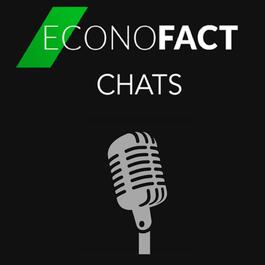
Abraham Lincoln and the Role of Government in the Economy (Re-broadcast)
In 1860, the United States had no national currency, no national bank, and no income tax. Lincoln had a vision of advancing the economic fortunes of the country and fostering greater economic equality through, for example, incentivizing railroads and creating land-grant universities. He and his Treasury Secretary Salmon Chase also faced the challenge of financing the hugely expensive Civil War. This week on EconoFact Chats, Roger Lowenstein describes how Lincoln and Chase revolutionized the role of the federal government, played a crucial part in the Union Army’s victory, and helped forge a national identity – a story that offers a mirror to the current debates over the role of government in building infrastructure and financing higher education as well as the burden of the national debt. Roger reported for The Wall Street Journal for more than a decade. This interview draws from his just-published book 'Ways and Means: Lincoln and His Cabinet and the Financing of the Civil War.' Note: This podcast was first posted on 13th March 2022.
From "EconoFact Chats"


Comments
Add comment Feedback